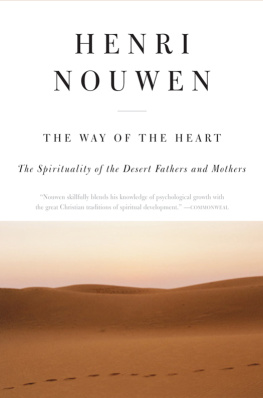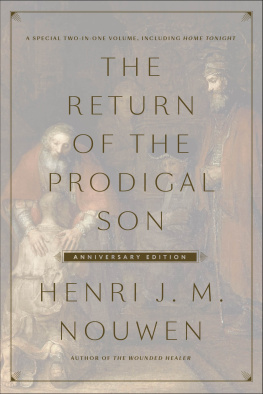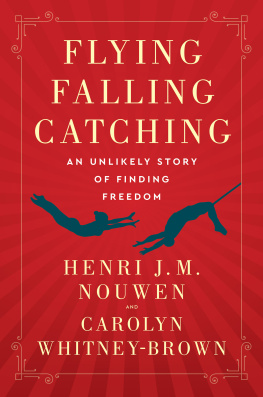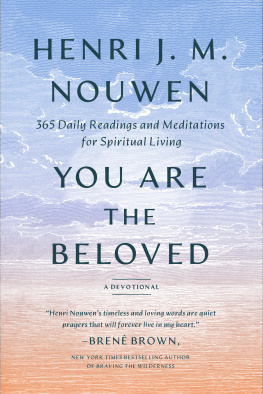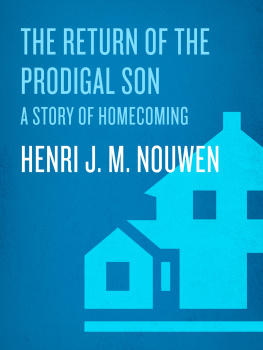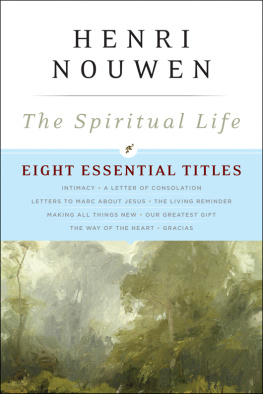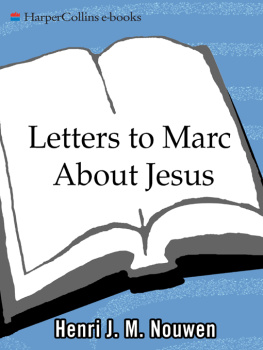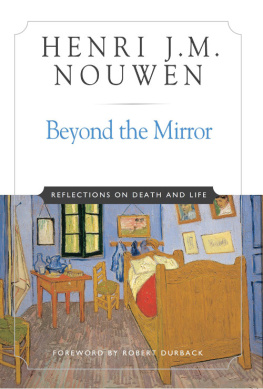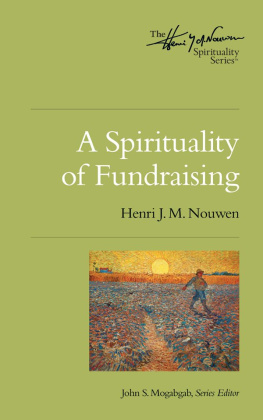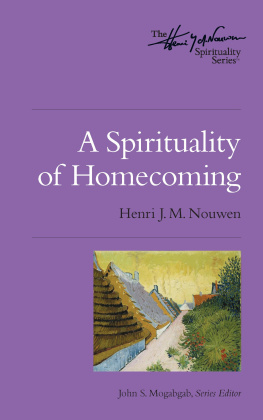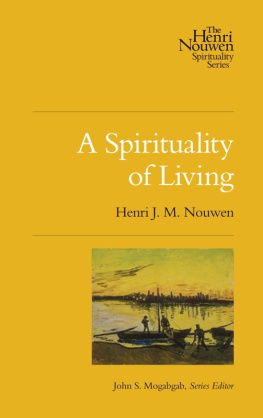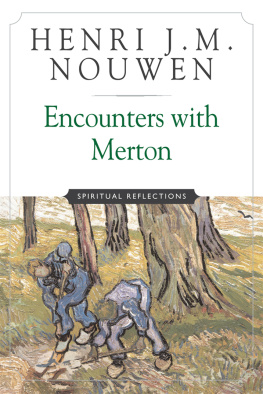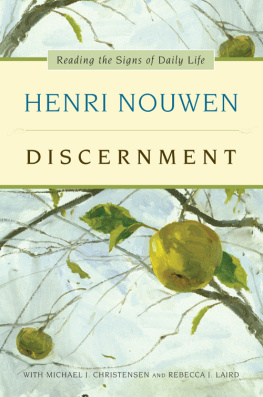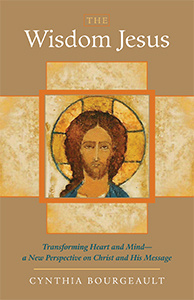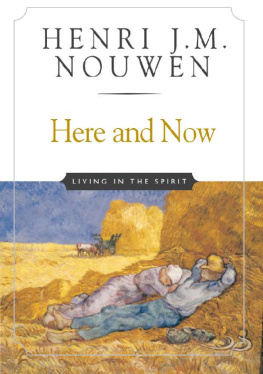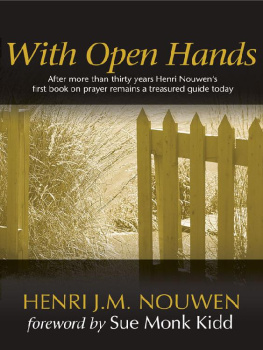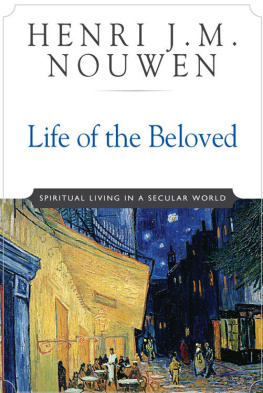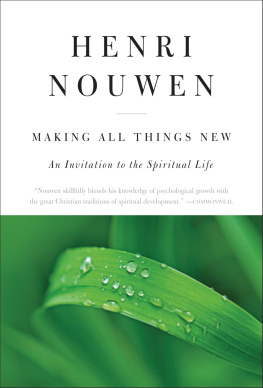Henri J. M. Nouwen - The Way of the Heart
Here you can read online Henri J. M. Nouwen - The Way of the Heart full text of the book (entire story) in english for free. Download pdf and epub, get meaning, cover and reviews about this ebook. year: 2003, publisher: Ballantine Books, genre: Religion. Description of the work, (preface) as well as reviews are available. Best literature library LitArk.com created for fans of good reading and offers a wide selection of genres:
Romance novel
Science fiction
Adventure
Detective
Science
History
Home and family
Prose
Art
Politics
Computer
Non-fiction
Religion
Business
Children
Humor
Choose a favorite category and find really read worthwhile books. Enjoy immersion in the world of imagination, feel the emotions of the characters or learn something new for yourself, make an fascinating discovery.
- Book:The Way of the Heart
- Author:
- Publisher:Ballantine Books
- Genre:
- Year:2003
- Rating:4 / 5
- Favourites:Add to favourites
- Your mark:
- 80
- 1
- 2
- 3
- 4
- 5
The Way of the Heart: summary, description and annotation
We offer to read an annotation, description, summary or preface (depends on what the author of the book "The Way of the Heart" wrote himself). If you haven't found the necessary information about the book — write in the comments, we will try to find it.
The Way of the Heart — read online for free the complete book (whole text) full work
Below is the text of the book, divided by pages. System saving the place of the last page read, allows you to conveniently read the book "The Way of the Heart" online for free, without having to search again every time where you left off. Put a bookmark, and you can go to the page where you finished reading at any time.
Font size:
Interval:
Bookmark:

To John Mogabgab
IN TWENTY YEARS we will celebrate the second millennium of the Christian Era. But the question is: Will there be anything to celebrate? Many voices wonder if humanity can survive its own destructive powers. As we reflect on the increasing poverty and hunger, the rapidly spreading hatred and violence within as well as between countries, and the frightening buildup of nuclear weapons systems, we come to realize that our world has embarked on a suicidal journey. We are painfully reminded of the words of John the Evangelist:
The Word... the true light... was coming into the world... that had its being through him, and the world did not know him. He came to his own domain and his own people did not accept him (John 1:911).
It seems that the darkness is thicker than ever, that the powers of evil are more blatantly visible than ever, and that the children of God are being tested more severely than ever.
During the last few years I have been wondering what it means to be a minister in such a situation. What is required of men and women who want to bring light into the darkness, to bring good news to the poor, to proclaim liberty to captives and to the blind new sight, to set the downtrodden free, to proclaim the Lords year of favor (Luke 4:1819)? What is required of a man or a woman who is called to enter fully into the turmoil and agony of the times and speak a word of hope?
It is not difficult to see that in this fearful and painful period of our history we who minister in parishes, schools, universities, hospitals, and prisons are having a difficult time fulfilling our task of making the light of Christ shine into the darkness. Many of us have adapted ourselves too well to the general mood of lethargy. Others among us have become tired, exhausted, disappointed, bitter, resentful, or simply bored. Still others have remained active and involvedbut have ended up living more in their own name than in the Name of Jesus Christ. This is not so strange. The pressures in the ministry are enormous, the demands are increasing, and the satisfactions diminishing. How can we expect to remain full of creative vitality, of zeal for the Word of God, of desire to serve, and of motivation to inspire our often numbed congregations? Where are we supposed to find nurture and strength? How can we alleviate our own spiritual hunger and thirst?
These are the concerns I should like to address in the following pages. I hope to offer some ideas and some disciplines that may be of help in our efforts to remain vital witnesses of Christ in the coming years; years that no doubt will be filled with temptations to unfaithfulness, a comfortable self-centeredness, and despair.
But where shall we turn? To Jacques Ellul, William Stringfellow, Thomas Merton, Teilhard de Chardin? They all have much to say, but I am interested in a more primitive source of inspiration, which by its directness, simplicity and concreteness, can lead us without any byways to the core of our struggle. This source is the Apophthegmata Patrum, the Sayings of the Desert Fathers. The Desert Fathers, who lived in the Egyptian desert during the fourth and fifth centuries, can offer us a very important perspective on our life as ministers living at the end of the twentieth century. The Desert Fathersand there were Mothers, toowere Christians who searched for a new form of martyrdom. Once the persecutions had ceased, it was no longer possible to witness for Christ by following him as a blood witness. Yet the end of the persecutions did not mean that the world had accepted the ideals of Christ and altered its ways; the world continued to prefer the darkness to the light (John 3:19). But if the world was no longer the enemy of the Christian, then the Christian had to become the enemy of the dark world. The flight to the desert was the way to escape a tempting conformity to the world. Anthony, Agathon, Macarius, Poemen, Theodora, Sarah, and Syncletica became spiritual leaders in the desert. Here they became a new kind of martyr: witnesses against the destructive powers of evil, witnesses for the saving power of Jesus Christ.
Their spiritual commentaries, their counsel to visitors, and their very concrete ascetical practices form the basis of my reflections about the spiritual life of the minister in our day. Like the Desert Fathers and Mothers, we have to find a practical and workable response to Pauls exhortation: Do not model yourselves on the behavior of the world around you, but let your behavior change, modeled by your new mind. This is the only way to discover the will of God and know what is good, what it is that God wants, what is the perfect thing to do (Romans 12:2).
To structure my reflections, I will use a story told about Abba Arsenius. Arsenius was a well-educated Roman of senatorial rank who lived at the court of Emperor Theodosius as tutor to the princes Arcadius and Honorius. While still living in the palace, Abba Arsenius prayed to God in these words, Lord, lead me in the way of salvation. And a voice came saying to him, Arsenius, flee from the world and you will be saved. Having sailed secretly from Rome to Alexandria and having withdrawn to the solitary life (in the desert) Arsenius prayed again: Lord, lead me in the way of salvation and again he heard a voice saying, Arsenius, flee, be silent, pray always, for these are the sources of sinlessness. The words flee, be silent and pray summarize the spirituality of the desert. They indicate the three ways of preventing the world from shaping us in its image and are thus the three ways to life in the Spirit.
My first task is to explore what it means for us to flee from the world. This raises the question of solitude. My second task is to define silence as an essential element of a spirituality of ministry. Finally, I want to challenge you with the vocation to pray always.
Introduction
ST. ANTHONY, THE FATHER of monks, is the best guide in our attempt to understand the role of solitude in ministry. Born around 251, Anthony was the son of Egyptian peasants. When he was about eighteen years old he heard in church the Gospel words, Go and sell what you own and give the money to the poor... then come and follow me (Matthew 19:21). Anthony realized that these words were meant for him personally. After a period of living as a poor laborer at the edge of his village, he withdrew into the desert, where for twenty years he lived in complete solitude. During these years Anthony experienced a terrible trial. The shell of his superficial securities was cracked and the abyss of iniquity was opened to him. But he came out of this trial victoriouslynot because of his own willpower or ascetic exploits, but because of his unconditional surrender to the Lordship of Jesus Christ. When he emerged from his solitude, people recognized in him the qualities of an authentic healthy man, whole in body, mind, and soul. They flocked to him for healing, comfort, and direction. In his old age, Anthony retired to an even deeper solitude to be totally absorbed in direct communion with God. He died in the year 356, when he was about one hundred and six years old.
The story of St. Anthony, as told by St. Athanasius, shows that we must be made aware of the call to let our false, compulsive self be transformed into the new self of Jesus Christ. It also shows that solitude is the furnace in which this transformation takes place. Finally, it reveals that it is from this transformed or converted self that real ministry flows. I therefore propose to explore these three aspects of St. Anthonys life in the hope of uncovering the problems as well as the opportunities in our ministry.
Font size:
Interval:
Bookmark:
Similar books «The Way of the Heart»
Look at similar books to The Way of the Heart. We have selected literature similar in name and meaning in the hope of providing readers with more options to find new, interesting, not yet read works.
Discussion, reviews of the book The Way of the Heart and just readers' own opinions. Leave your comments, write what you think about the work, its meaning or the main characters. Specify what exactly you liked and what you didn't like, and why you think so.

